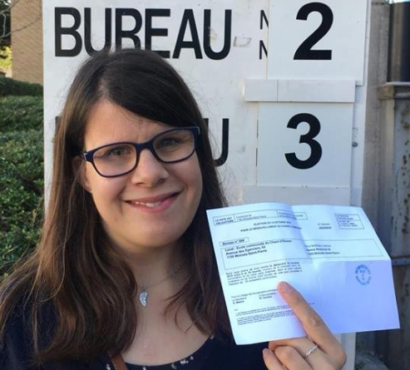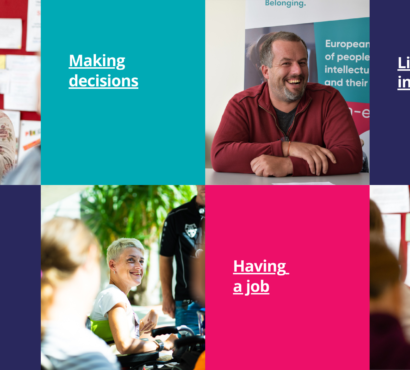Let people make their own decisions!
What shall I wear? Where do I want to live? Who do I want to vote for? Life is full of decisions. Some decisions we make turn out to be wrong. But everyone has the right to make mistakes, don’t they?
There is a widespread notion that people with intellectual disabilities need to be “protected” from making their own decisions. This leads to them being put under guardianship and stripped of their legal capacity.
But this approach contrasts starkly with the UN Convention on the Rights of Persons with Disabilities (UN CRPD): The convention clearly states that “persons with disabilities enjoy legal capacity on an equal basis with others in all aspects of life”.
Inclusion Europe therefore advocates for a change in law in countries that still put people under full guardianship. Supported decision-making systems with effective safeguards are viable alternatives that, in accordance with the UN CRPD, should be introduced instead.
Supported decision-making means that no transfer of rights takes place. Only support is provided, and the person remains in control of their life. Full guardianship regimes, consequently, cease to exist, and disabled people enjoy all their rights.
When it comes to legal capacity laws, the situation in Europe varies a lot from country to country. Some have introduced progressive laws, whereas others continue to stick to outdated legislation. A general trend of reforms to implement “modern guardianship” laws kept the issue of legal capacity on the political agenda in many countries. There have been several attempts to include models of supported-decision making in the legislation in some Central and Eastern European Countries.
Challenges, however, continue to exist – for example:
- Economic and financial challenges: People often are not given the right to hold a bank account, and, in some cases, to dispose of their own money.
- Overprotective attitudes in society towards people with intellectual disabilities
- Legal framework: Guardianships are still a part of many national legislations. These countries have not implemented the shift from guardianship to assisted-decision making intended by the UN Convention on the Rights of Persons with Disabilities (UN CRPD).
- Lack of political will
Inclusion Europe has identified several areas where progress needs to be made to support the implementation of modern legal capacity laws:
- More financial and human resources to develop effective and accessible community-based services, to back up supported decision-making
- More and better support networks for people with intellectual disabilities
- Better knowledge amongst professionals, policy-makers and families on the distinction between support persons and guardians, and a better understanding of their respective role
- Better involvement of self-advocates and organisations of people with intellectual disabilities in policy and decision-making
- Better exchange of information on good practices between countries
- More awareness raising about the abilities of people with intellectual disabilities
Position papers on legal capacity:
- Key Elements of a System for Supported Decision-Making
- Safeguards in measures relating to the exercise of legal capacity
How denial of legal capacity impacts on life
The right to make financial decisions







